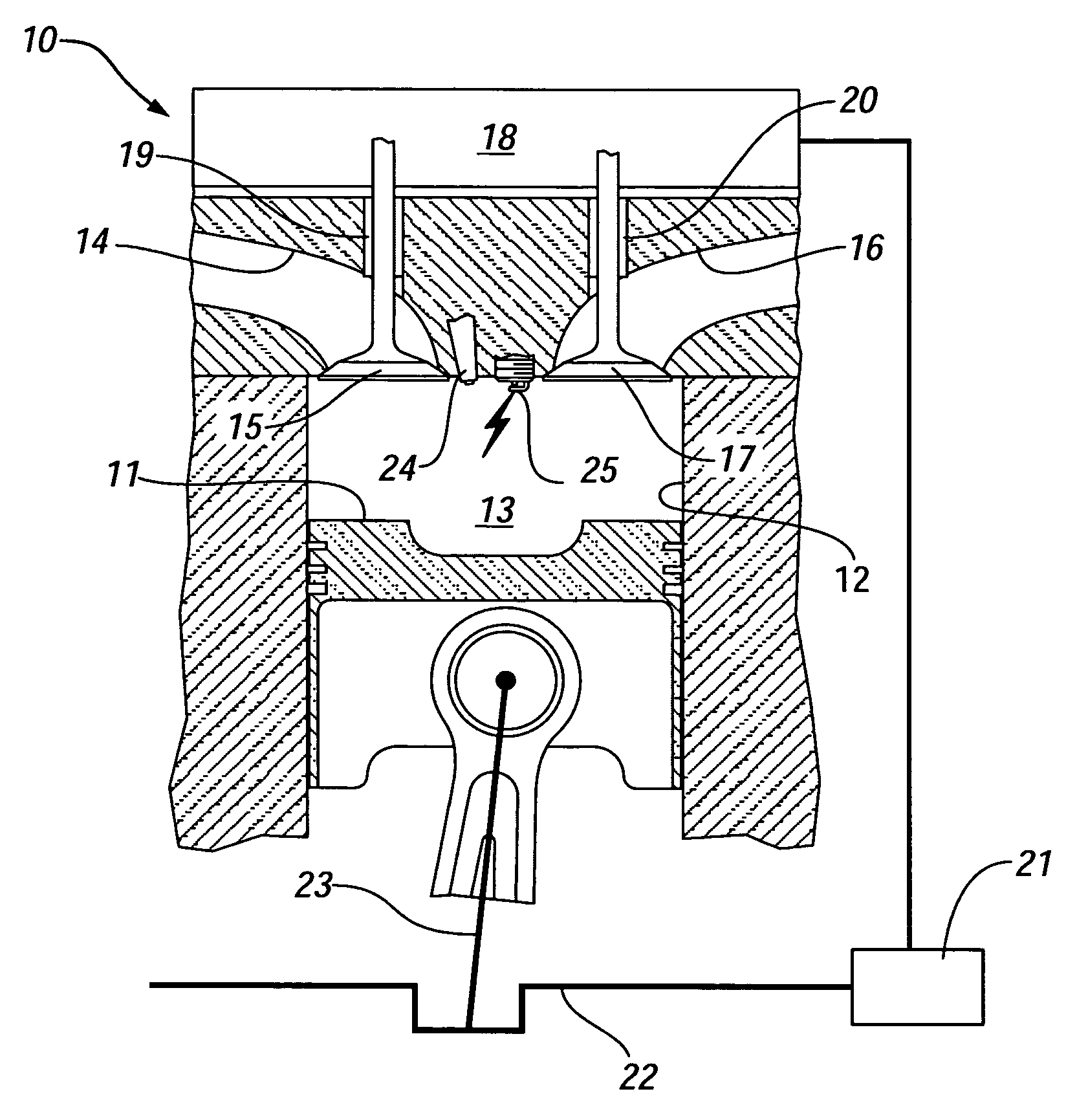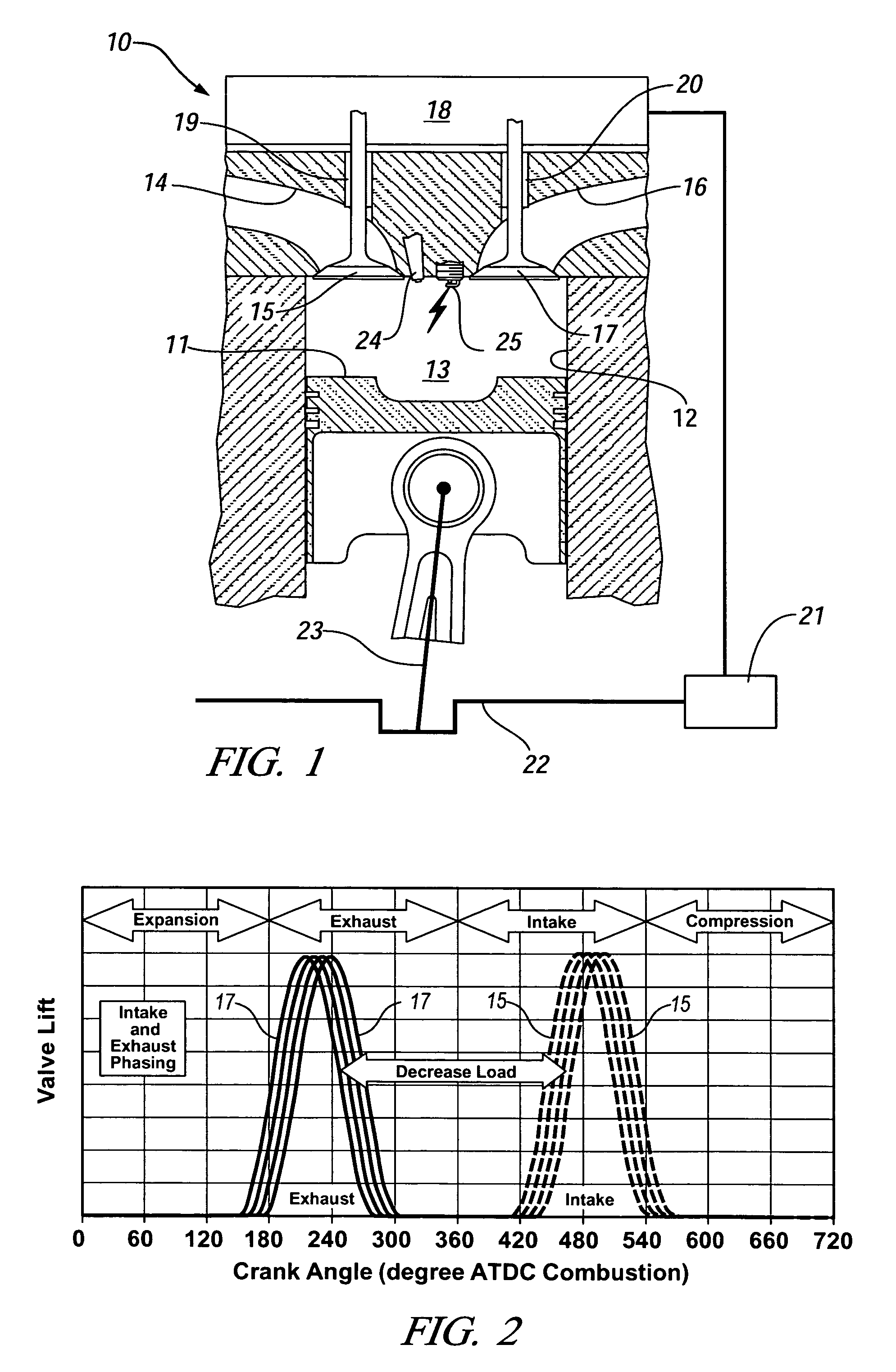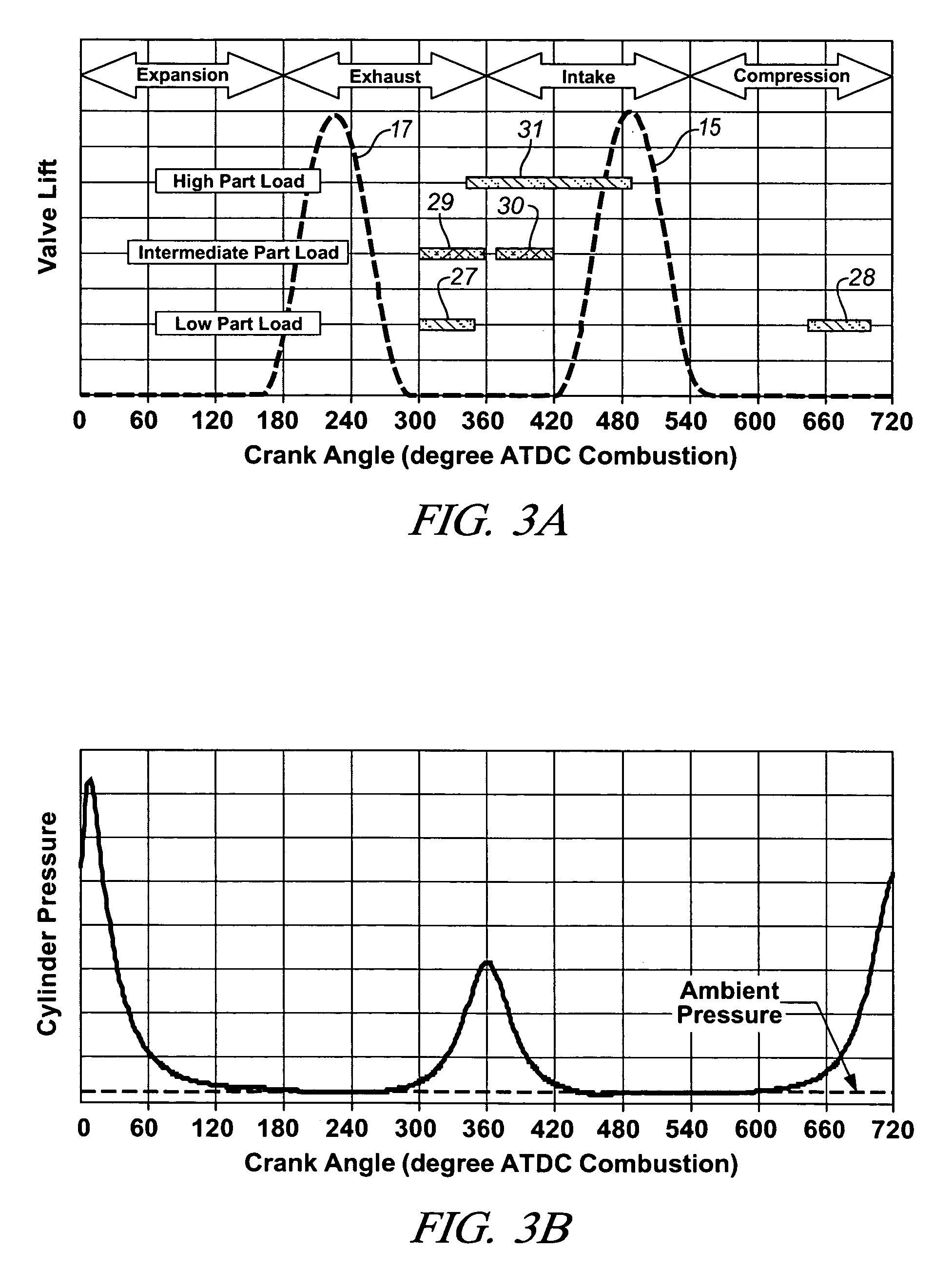Load transient control methods for direct-injection engines with controlled auto-ignition combustion
a technology of direct injection and control method, which is applied in the direction of electric control, machines/engines, output power, etc., can solve problems such as partial burn or misfir
- Summary
- Abstract
- Description
- Claims
- Application Information
AI Technical Summary
Benefits of technology
Problems solved by technology
Method used
Image
Examples
Embodiment Construction
[0031] For simplicity, the following descriptions will address the present invention in its application to a single cylinder direct-injection gasoline four-stroke internal combustion engine, although it should be appreciated that the present invention is equally applicable to a multi-cylinder direct-injection gasoline four-stroke internal combustion engines. A four-stroke, single cylinder, 0.55 liter, internal combustion engine was utilized in implementing the various controls and acquisition of the various data embodied herein. Unless specifically discussed otherwise, all such implementations and acquisitions are assumed to be carried out under standard conditions as understood by one having ordinary skill in the art. The present invention is described in its application to a two valves per cylinder engine (one intake and one exhaust valve), although it should be appreciated that the present invention is equally applicable to a multi-valve per cylinder engine. And, although the pre...
PUM
 Login to View More
Login to View More Abstract
Description
Claims
Application Information
 Login to View More
Login to View More - R&D
- Intellectual Property
- Life Sciences
- Materials
- Tech Scout
- Unparalleled Data Quality
- Higher Quality Content
- 60% Fewer Hallucinations
Browse by: Latest US Patents, China's latest patents, Technical Efficacy Thesaurus, Application Domain, Technology Topic, Popular Technical Reports.
© 2025 PatSnap. All rights reserved.Legal|Privacy policy|Modern Slavery Act Transparency Statement|Sitemap|About US| Contact US: help@patsnap.com



